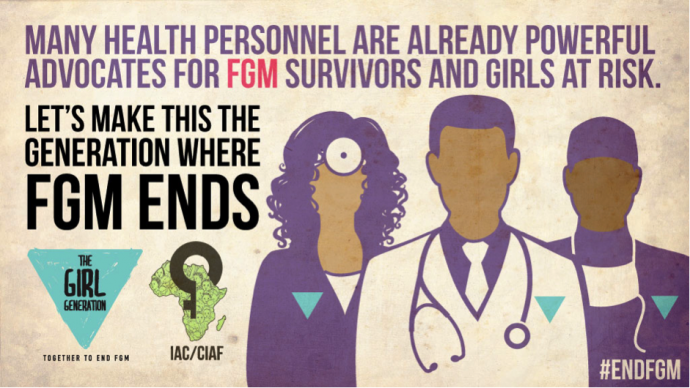Goodluck Jonathan’s term as President is over and he did one last thing as a last adieu; signing a bill that officially criminalizes Female Genital Mutilation (FGM) in Nigeria.
FGM, also known as female circumcision, is a procedure in which all or most of the external female genitalia is either removed or otherwise surgically altered for nonmedical reasons. The procedure has no documented health benefits and is considered a violation of the human rights of girls and women by international bodies like the World Health Organization. The inhumane procedure is carried out most frequently in Africa due to various cultural practices like rites of passage. Nigeria, being the most populous country in Africa with a population of 175 million, has the most reported cases of the 29 countries that are known to have FGM cases. According to the US National Library of Medicine the West African country contributes to about a quarter of the 115-130 million circumcised women worldwide.
The new bill passed in Nigeria therefore is expected to be a game changer for the African continent. The large sized country better known for its thriving movie industry, has a tangible influence on the African continent’s mind-set. Experts such as J. Peter Pham, the director of the Africa Center at the Atlantic Council project that through a ripple effect, Nigeria’s decision will influence other African countries to follow suit.
Despite the fact that this new bill is a huge step towards reducing the cases of FGM in the country, it will not happen overnight. Stella Mukasa, the director of gender, violence and rights at the International Centre for Research on Women says, “While legal safeguards are an important step towards ending FGM, they are not enough to eliminate it. Ending violence against women and girls requires investment, not just laws written in statute books. This is why we must emphasize community engagement, with a view towards shifting social norms, as a critical component of the eradication of FGM.”
However, this law has been a long time coming. Despite decades of the fight against FGM being active in Nigeria, the law was passed only this year. This is because Jonathan is leaving office and has no risk of losing voters with this daring move. “There’s a price to be paid by bucking norms that are widely observed,” said Pham. The President-elect, Muhammadu Buhari, will also be in the clear as he will say he is simply carrying out the law.
How successful will the new bill be? In Egypt FGM was outlawed in 2008 however, its prevalence is still at 92%. Women surveyed said they continue to be in favour of FGM because they viewed it as being in accordance with their cultural and religious traditions. Changing social norms is not an easy process and therefore Nigerians should not grow complacent with the passing of the bill, but should fuel their tanks in readiness to continue the fight with full force.
Other African countries facing the same problem such as Somalia, Guinea and Djibouti where prevalence rates are as high as 95% (according to the WHO), should borrow a leaf from Nigeria in order for us to see the day when FGM is a thing of the past. It will definitely take a while but the fight is necessary in order to put a stop to the suffering of millions of girls and women across the continent.





